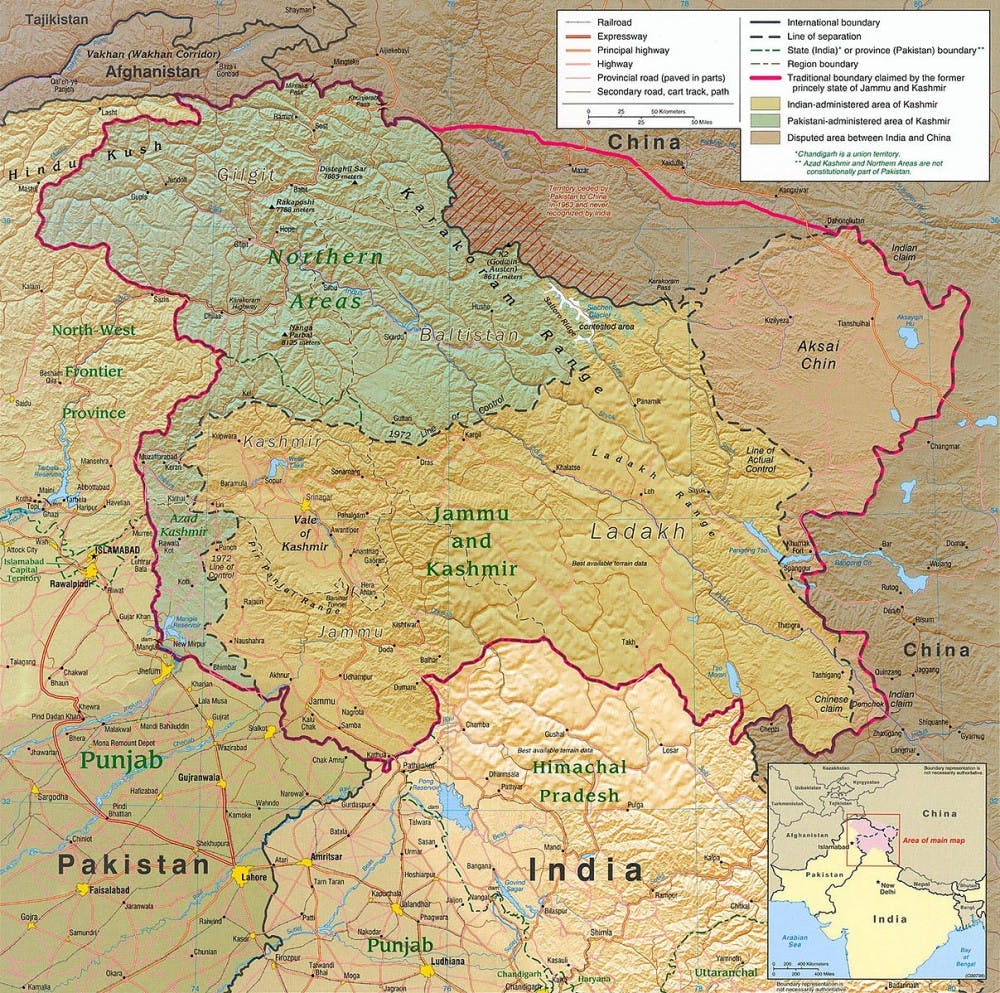Ideally, patriotism is a beautiful notion — a love for one’s homeland and heritage paired with a burning desire to protect those roots. In the real world, however, the idea of “patriotism” devolves into just another weapon used to propel conflicts between nationalist governments. Even more egregiously, it is often merely a disingenuous rebranding of chauvinism.
Last month, actress and public figure Priyanka Chopra blatantly disregarded her duties as a UNICEF ambassador. When Ayesha Malik, a Pakistani-American audience member, challenged her for her hypocritical support of the Indian Army in the face of the Kashmir lockdown, Chopra had little to say besides apathetically asking Malik if she was “done venting.” Despite preaching about humanity, Chopra fallaciously reduced her support for the issue down to her identity as an Indian “patriot.”
Priyanka holds a lot of influence in the United States as one of the few Bollywood actresses to have been successfully integrated into Hollywood. She represents a face for Indian women to many people who are otherwise unaware of Indian culture, and she is a key figure with whom many young Indian-American women identify.
Her ability to openly abuse her star power in the name of patriotism and carelessly set an example of apathy is one of the many reasons that a pernicious “patriotism” pervades our current political sphere.
We live in a world wrought with religious warfare, where thousands are being stripped of their human rights every day in Kashmir, Syria, Afghanistan, and many more regions where religious politics supersede individual rights. In the face of such circumstances, international intervention and empathy are crucial.
Yet “patriotism” allows for an abuse of power on not only the social level that Chopra demonstrated, but also the governmental level. Nationalist governments protect their ideological interests over humanity’s, rallying the public to show their patriotic support.
Narendra Modi, India’s prime minister, regularly advocates for the suppression of Indian Muslims in the name of being “Hindustani.” He has now unconstitutionally stripped Kashmir of its independence in revoking Article 370, promoting centralized national control over the Muslim-majority region of Jammu and Kashmir.
The last six weeks in the region have been marked by a complete denial of human rights. People are being tortured and molested for leaving their homes. Gatherings, even phone calls, are being blocked on religious holidays such as Eid and Muharram. The decimation of individual rights is grossly overwhelming. Yet millions of “patriotic” Indians still stand resolutely behind their government’s actions, showing blind support for a more powerful Hindustan.

The pressure to show support for one’s homeland carries a lot of momentum in nationalist societies like India, meaning that millions of Indians willingly turn a blind eye to the wide-scale suppression of Muslim minorities, while simultaneously showing limited resistance as leaders like Modi abuse their power and violate democracy in stripping Kashmir of its independent status.
Patriotism also offers members of the public a one-word excuse for their blissful ignorance of the lack of humanity surrounding them. Under the assumption that patriotism is a positive sentiment, these societies propagate the illusion of heinous acts having profound and reasonable justification.
Not only do notions of patriotism create an ignorance towards domestic human rights violations within a country, they also spur ignorance between countries. While patriotism within countries can terrorize and marginalize minorities, as is the case with Indian Muslims in Kashmir, the hostility bred by pro-Hindustani ideologies manifests most strongly in intercountry conflicts with Pakistan.
Here, it is no longer a matter of minorities within a country converging to their national values, but rather an issue of establishing the superiority of one’s country in relation to other nations that represent values different from their own. Thus, the Kashmir crisis is intensified by the Indian army’s reluctance to succumb to the demands of Pakistani Muslims who seek the liberation of Indian Kashmiris.

The Pakistan-India conflict is the epitome of what “patriotism” has come to mean in the current political arena, led by nationalist giants like Trump’s America, Johnson’s UK, Xi’s China, and Modi’s India. Moreover, many European Union countries are also trending towards nationalist, conservative governments. In such a playing field, modern day patriotism deviates far from its idealistic notion of love for the homeland and instead leans dangerously towards weaponizing the national identity to hate and target nations with diverging values.
Khadijah Anwar is a sophomore undergraduate from Dubai, UAE. She can be reached at kanwar@princeton.edu.








